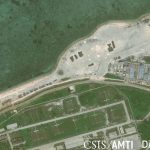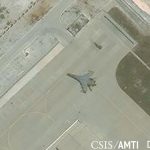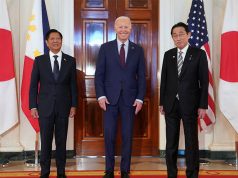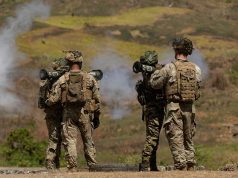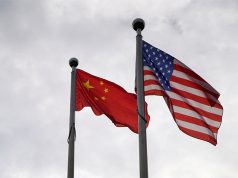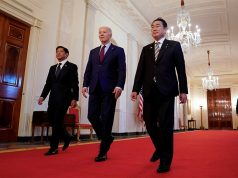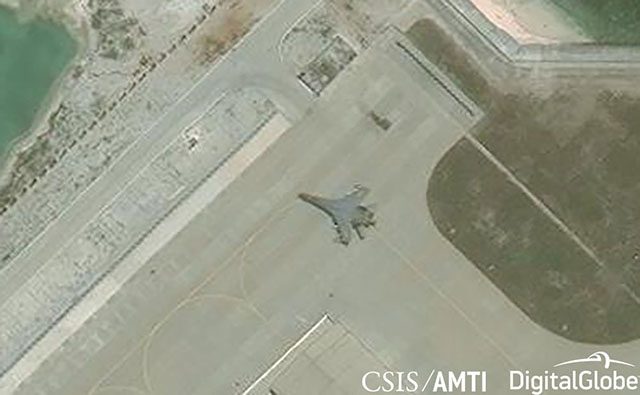
WASHINGTON — The Pentagon on Wednesday uninvited China from a major U.S.-hosted naval drill in response to what it sees as Beijing’s militarization of islands in the South China Sea, a decision China called unconstructive.
“As an initial response to China’s continued militarization of the South China Sea we have disinvited the PLA Navy from the 2018 Rim of the Pacific (RIMPAC) Exercise,” said Lieutenant Colonel Christopher Logan, a Pentagon spokesman.
PLA is the English-language acronym of China’s military, the People’s Liberation Army.
Logan did not specify what else the U.S. government might do to respond but stressed there was “strong evidence” that China had deployed anti-ship missiles, surface-to-air missile systems and electronic jammers to contested features in the Spratly Islands.
“We find that a very unconstructive move,” the Chinese government’s top diplomat, State Councilor Wang Yi, told reporters in Washington after meeting with U.S. Secretary of State Mike Pompeo.
Wang described China’s activity in the South China Sea as self-defense, saying it was working on a “much smaller scale” than what the United States had done in Hawaii and Guam.
“We hope that the U.S. will change such a negative mindset.”
Over the weekend China’s air force landed bombers on disputed islands and reefs in the South China Sea as part of a training exercise in the region, triggering concern from Vietnam and the Philippines.
Satellite photographs taken on May 12 showed China appeared to have deployed truck-mounted surface-to-air missiles or anti-ship cruise missiles at Woody Island in the Paracel island chain to the north of the Spratlys, said Greg Poling, a South China Sea expert at Washington’s Center for Strategic and International Studies.
Poling, who heads CSIS’s Asia Maritime Transparency Initiative, said the images showed China had also deployed J-11 combat aircraft as part of its exercises.
He said later satellite images, taken on May 20 and published by Fox News, showed the missile systems still in place, suggesting they could be there to stay.
The Rim of the Pacific exercise, known as RIMPAC, is billed as the world’s largest international maritime exercise, held every two years in Hawaii in June and July, and China has attended previously.
Abraham Denmark, a former deputy assistant secretary of defense for East Asia under President Barack Obama, said the move was largely symbolic.
“To me it shows that the relationship is veering towards increasingly intense competition and the Pentagon sees diminishing returns on the value of military to military cooperation with China,” Denmark said.
U.S. President Donald Trump has praised China in recent months for its help putting pressure on North Korea, even amid concerns about a potential trade war between Washington and Beijing, the world’s two largest economies.
Earlier this month the United States said it had raised concerns with China about its latest militarization of the South China Sea and said there would be near-term and long-term consequences.
Pentagon officials have long complained that China has not been candid enough about its rapid military build-up and using South China Sea islands to gather intelligence in the region.
Chinese officials have accused Washington of viewing their country in suspicious, “Cold War” terms.
“On the so-called militarization in the South China Sea, we talked about this issue just now … It is a normal deployment and has nothing to do with militarization,” Wang said.
The United States has dispatched warships to disputed areas of the South China Sea in a bid to challenge China’s extensive sovereignty claims in the territory, which is subject to various claims by China, Vietnam, the Philippines, Taiwan, Brunei and Malaysia. — Reporting by Idrees Ali, Phil Stewart, David Brunnstrom and Lesley Wroughton; Additional reporting by Ben Blanchard in Beijing; Editing by James Dalgleish and Tom Brown




